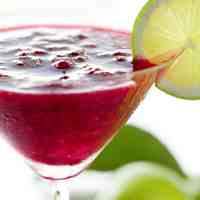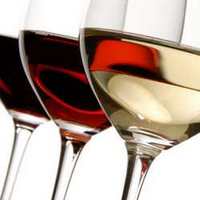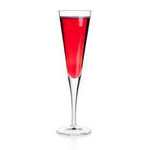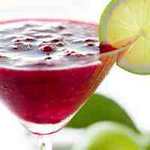French Drinks - Espresso, Wine, Cognac, Pastis
Popular French drinks run the gamut from espresso in the early morning to a sip of brandy to finish the evening meal. In between there might be a bottle of sparkling water with lunch, a pastis in the lazy (and soon to become hazy) late afternoon, and a glass or two of good red wine with dinner.
Le Café

- Un Café - A small cup of espresso-strength coffee.
- Un Double - Twice the amount of the same coffee.
- Une Noisette - Once again this is an espresso, but there is a hint of cream or milk floating on top.
- Café au Lait - An espresso with hot milk added.
- Café allongé - Espresso-strength coffee that has been watered down.
- Chocolat Chaud - Hot chocolate. Lots of times this will be made without sugar - you add the amount you want.
- Thé - Tea, usually served in a small pot with a cup and sugar alongside it.
- Thé au Lait - Tea with a small pitcher of hot milk too.
- Tisane - Herbal tea. Popular herbal teas in France include verbena, lime flower, mint, chamomile, and sage.
Apéritif

La Bière et le Cidre
France does make some of its own beer although it is not nearly as popular a drink as wine. French drinks also include cider which you will find in Normandy and other areas in the north of France.Le Vin
And of course one of the most popular French drinks is le vin, or wine. There are many French wine regions, each with its own distinctive wines and you could spend the rest of your life happily learning to appreciate each one. The French wine regions include:
- Alsace (northeast France)
- Bordeaux (southwest)
- Bourgogne (a skinny stretch of land running from north to south in the eastern-central region of France)
- Champagne (northeast, but not as east as Alsace)
- Corse (island in the Mediterranean)
- Côtes du Rhône (southeast, away from the coast)
- Languedoc-Roussillon (central south coast)
- Loire (a bit to the north and stretching from the west to central France)
- Provence (eastern south coast)
- Sud-Ouest (southwest)
Recommended Site
There's more to life than French wine you know
. . . there's Australian wine!
Check out Vinodiversity for a great read on wine and food. Darby knows how to enjoy a glass of wine wherever he is and can write about it with wit and enthusiasm.
Le Digestif
After dinner some people enjoy a little something to help wash it all down. Personally I have always found the term digestif a misnomer. How could swallowing burning alcohol help anyone digest? French Liqueurs, including the very royal Chambord liqueur are often served at this time as well as eaux-de-vie, or brandies. Some well-known types of brandy in France are:- Cognac - The most popular of French brandies comes from the department of Charente near Bordeaux.
- Armagnac - A brandy made in the Gascony region, which is in the southwest of France.
- Calvados - Apple brandy produced in the Normandy region in north-western France.
Soft Drinks
Well if you have survived all of that, you might be wishing for something a little less strong the next day! As everywhere in the world you can have a Coke, just don't forget to call it a coca when you order. The French are even drinking decaffeinated and artificially sweetened sodas this days. Not necessarily progress!Drink syrups are extremely popular in France. You will find grenadine syrup and many other syrups, such as mint, fruit flavors, and even nut and almond flavors.
Milk
If you buy milk in France you may be surprised to find it in non-refrigerated plastic bottles or cartons. Although you can find pasteurized milk, most of the milk in France is UHT (ultra haute température), or ultra high temperature treated. This gives the milk a shelf life of many months and is a great convenience to French shoppers who can stock up and avoid some of those last minute dashes to the grocery store. You will find that UHT milk has a slightly different taste than pasteurized.Eau
 And finally there is water. The French, just like a lot of Europeans, have been drinking various bottled
mineral waters for years. There are dozens of popular brands include Badoit, Contrex, Evian, St. Yorre, and
Perrier. Each has a different taste. Some are carbonated to varying degrees and others not at all. Some have
a high mineral content and can be good sources of magnesium as well as calcium. Learn more here: French Bottled Water.
And finally there is water. The French, just like a lot of Europeans, have been drinking various bottled
mineral waters for years. There are dozens of popular brands include Badoit, Contrex, Evian, St. Yorre, and
Perrier. Each has a different taste. Some are carbonated to varying degrees and others not at all. Some have
a high mineral content and can be good sources of magnesium as well as calcium. Learn more here: French Bottled Water.
Whichever one of these French drinks you are enjoying when you raise your glass in a toast, why not try out a little French?
- Santé - Health.
- À la vôtre - To yours, meaning to your health.
- Tchin-tchin - This is the noise of glasses touching in a toast. The French will frequently say it before taking their first sip.
And please remember to DRINK SLOWLY and enjoy your beverage!
Return to French Foods.




New! Comments
Have your say about what you just read! Leave me a comment in the box below.